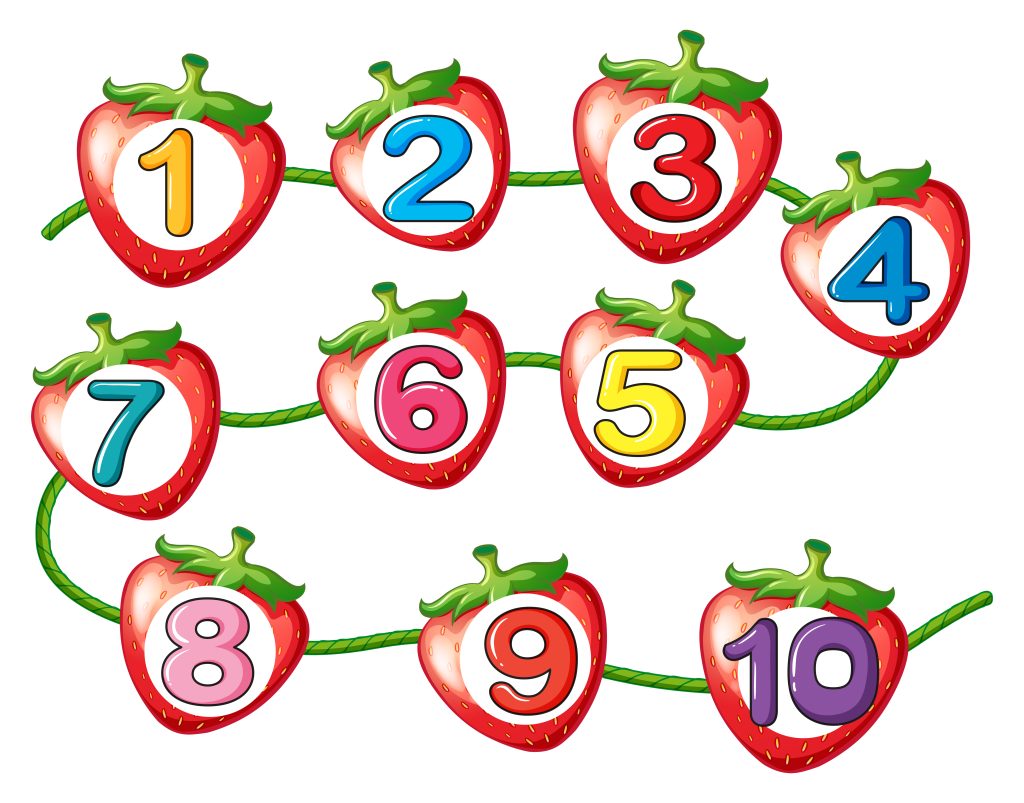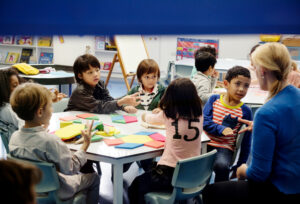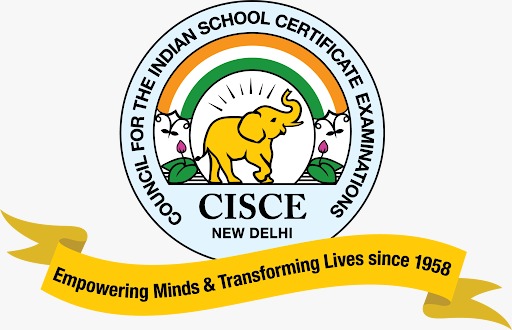Learning number names is a fundamental part of early childhood education. It helps children develop a strong foundation in mathematics and prepares them for more complex numerical concepts. This blog will explore the importance of learning number names, provide detailed lists of number names from 1 to 100, and offer tips and activities for teaching these concepts to children.
Why Learning Number Names is Essential
Benefits for Early Childhood Education: Learning number names helps children recognize and understand numbers, which is crucial for their cognitive development. It lays the groundwork for arithmetic skills and enhances their ability to count, add, subtract, and understand mathematical relationships.
Role in Mathematical Development: Knowing number names aids in the development of numerical literacy. It helps children understand the place value system, which is vital for grasping more complex mathematical concepts later on.
Everyday Applications: Number names are used in everyday life for telling time, handling money, measuring, and following sequences. Teaching children number names equips them with the skills they need for these everyday tasks.
Number Names 1 to 10
Introducing young children to the number names from one to ten is the first step in their numerical education. This foundational knowledge is essential for understanding larger numbers and mathematical concepts.
Tips for Teaching Young Children: Use visual aids like flashcards, number charts, and picture books. Engage children with songs, rhymes, and interactive games that reinforce number names.
| Number | Name |
| 1 | One |
| 2 | Two |
| 3 | Three |
| 4 | Four |
| 5 | Five |
| 6 | Six |
| 7 | Seven |
| 8 | Eight |
| 9 | Nine |
| 10 | Ten |
Number Names 11 to 20
After mastering the numbers one to ten, children can move on to the numbers eleven to twenty. These numbers introduce new patterns and help children understand the concept of teen numbers.
Common Patterns and Tips for Memorization: Notice the pattern in the teen numbers (thirteen, fourteen, etc.) and use repetition to help children memorize them. Associating each number with a visual or story can also aid retention.
| Number | Name |
| 11 | Eleven |
| 12 | Twelve |
| 13 | Thirteen |
| 14 | Fourteen |
| 15 | Fifteen |
| 16 | Sixteen |
| 17 | Seventeen |
| 18 | Eighteen |
| 19 | Nineteen |
| 20 | Twenty |
Number Names 21 to 50
As children progress, they begin to understand larger numbers. The number names from twenty-one to fifty build on their existing knowledge and introduce them to more complex numerical patterns.
Techniques for Teaching Larger Numbers: Break down the numbers into manageable chunks. For instance, teach twenty-one to thirty first, then move on to the next set of ten numbers. Use number charts and encourage children to practice writing these numbers in words.
| Number | Name |
| 21 | Twenty-one |
| 22 | Twenty-two |
| 23 | Twenty-three |
| 24 | Twenty-four |
| 25 | Twenty-five |
| 26 | Twenty-six |
| 27 | Twenty-seven |
| 28 | Twenty-eight |
| 29 | Twenty-nine |
| 30 | Thirty |
| 31 | Thirty-one |
| 32 | Thirty-two |
| 33 | Thirty-three |
| 34 | Thirty-four |
| 35 | Thirty-five |
| 36 | Thirty-six |
| 37 | Thirty-seven |
| 38 | Thirty-eight |
| 39 | Thirty-nine |
| 40 | Forty |
| 41 | Forty-one |
| 42 | Forty-two |
| 43 | Forty-three |
| 44 | Forty-four |
| 45 | Forty-five |
| 46 | Forty-six |
| 47 | Forty-seven |
| 48 | Forty-eight |
| 49 | Forty-nine |
| 50 | Fifty |
Number Names 51 to 100
Learning number names from fifty-one to one hundred completes the foundational numerical knowledge that children need. This range reinforces their understanding of the patterns in number names and prepares them for more advanced mathematics.
Advanced Teaching Strategies: Use engaging methods like storytelling, digital apps, and interactive games. Encourage frequent practice and incorporate number names into daily activities, such as counting items or reading number books.
| Number | Name |
| 51 | Fifty-one |
| 52 | Fifty-two |
| 53 | Fifty-three |
| 54 | Fifty-four |
| 55 | Fifty-five |
| 56 | Fifty-six |
| 57 | Fifty-seven |
| 58 | Fifty-eight |
| 59 | Fifty-nine |
| 60 | Sixty |
| 61 | Sixty-one |
| 62 | Sixty-two |
| 63 | Sixty-three |
| 64 | Sixty-four |
| 65 | Sixty-five |
| 66 | Sixty-six |
| 67 | Sixty-seven |
| 68 | Sixty-eight |
| 69 | Sixty-nine |
| 70 | Seventy |
| 71 | Seventy-one |
| 72 | Seventy-two |
| 73 | Seventy-three |
| 74 | Seventy-four |
| 75 | Seventy-five |
| 76 | Seventy-six |
| 77 | Seventy-seven |
| 78 | Seventy-eight |
| 79 | Seventy-nine |
| 80 | Eighty |
| 81 | Eighty-one |
| 82 | Eighty-two |
| 83 | Eighty-three |
| 84 | Eighty-four |
| 85 | Eighty-five |
| 86 | Eighty-six |
| 87 | Eighty-seven |
| 88 | Eighty-eight |
| 89 | Eighty-nine |
| 90 | Ninety |
| 91 | Ninety-one |
| 92 | Ninety-two |
| 93 | Ninety-three |
| 94 | Ninety-four |
| 95 | Ninety-five |
| 96 | Ninety-six |
| 97 | Ninety-seven |
| 98 | Ninety-eight |
| 99 | Ninety-nine |
| 100 | One hundred |
Fun Activities and Games to Learn Number Names
Making learning fun is key to helping children retain information. Here are some interactive games and creative activities that can reinforce number names.
Interactive Games: Use online games and apps designed for number learning. Games like matching numbers with their names, number name bingo, and digital flashcards can make learning engaging and enjoyable.
Creative Activities: Incorporate arts and crafts by having children create number charts, decorate numbers with stickers, or build number blocks. Storytelling that includes counting or number naming can also make learning more relatable and fun.
Tips for Parents and Educators
Teaching number names can be challenging, but with the right strategies, it can be a rewarding experience for both the teacher and the learner.
Best Practices for Teaching Number Names: Consistency is key. Regular practice, combined with patience and encouragement, helps children master number names. Use a variety of teaching aids and methods to cater to different learning styles.
Common Challenges and How to Overcome Them: Some children may struggle with memorization or understanding the patterns in number names. Break down the learning process into smaller steps, use mnemonic devices, and provide plenty of positive reinforcement to keep them motivated.
Conclusion
Learning number names from one to one hundred is a crucial step in a child’s mathematical journey. It not only helps them with basic arithmetic but also equips them with skills for everyday life. By using engaging methods, fun activities, and consistent practice, parents and educators can make this learning process enjoyable and effective.
FAQs (Frequently Asked Questions)
Effective ways include using visual aids like flashcards and number charts, engaging children with songs and rhymes, and incorporating interactive games and storytelling.
Break down the learning process into smaller chunks, use repetition and mnemonic devices, and practice regularly. Encourage your child to use number names in everyday situations to reinforce learning.
Interactive games, digital apps, arts and crafts projects, and storytelling that includes counting and number names are all effective and enjoyable ways to learn.
Yes, many educational websites offer free printable worksheets that help children practice writing and recognizing number names.
Learning number names helps children develop numerical literacy, understand the place value system, and build a strong foundation for more advanced mathematical concepts.







